The incident began on March 8, 2024, when Exhuma: Tomb Raider (original title: Exhuma ) was officially released in several countries. The Chinese market has not yet had a release date for this film. The film has currently earned 65 million USD, and in Vietnam alone, 74 billion VND since its release on March 15.
Some Chinese netizens were quick to express their disappointment with the Korean film Exhuma , saying that drawing Chinese characters on the faces of Korean actors in the film was inappropriate and mocking them, despite the fact that Exhuma had surpassed 7 million viewers in Korea at the time.

Scene from the movie Exhuma
A post on social network X (recently changed name of Twitter) by a Chinese user has attracted more than 6 million views, because of expressing disagreement with a scene in Exhuma , because of the way the Korean filmmaker chose to show Chinese characters on the face of the shaman character as an ancient form of suppression.
This person argued that in Chinese culture, writing or having characters carved on the face is considered very disrespectful and even humiliating, which was originally reserved for criminals or criminals in ancient times when they were exiled. Many Chinese netizens also commented further, criticizing the film's depiction of Chinese culture, saying that translating Korean words into Chinese would result in meaningless symbols.
That's because, in addition to the character in the movie Exhuma drawing Chinese characters on his face while practicing as a shaman, the mass audience - the die-hard fans of the movie Exhuma in Korea also turned drawing characters in this movie into a "trend", like "shamans" drawing Chinese characters on their faces to ward off evil forces.
A Chinese user uploaded a compilation of such portraits filled with Chinese characters to X and criticized the practice, in a post originally written in English and later translated into Korean. "It's ridiculous that Koreans write Chinese characters on their faces that they don't even know the meaning of."
The Korean version of the post has had over 6.3 million views and 71,000 reposts.
Chinese netizens have repeatedly attacked Korean Kbiz.
This is not the first time Chinese netizens have criticized the content of Korean films and Korean artists.
In October 2022, when young singer Jang Won-young (born 2004) of the Korean girl group IVE wore a phoenix hairpin at Paris Fashion Week, some Chinese netizens claimed that the singer had stolen Chinese culture when she showed off through a Vlog released by Vogue Korea , saying: "I wore this hairpin to show the appearance of Korean culture in Paris."
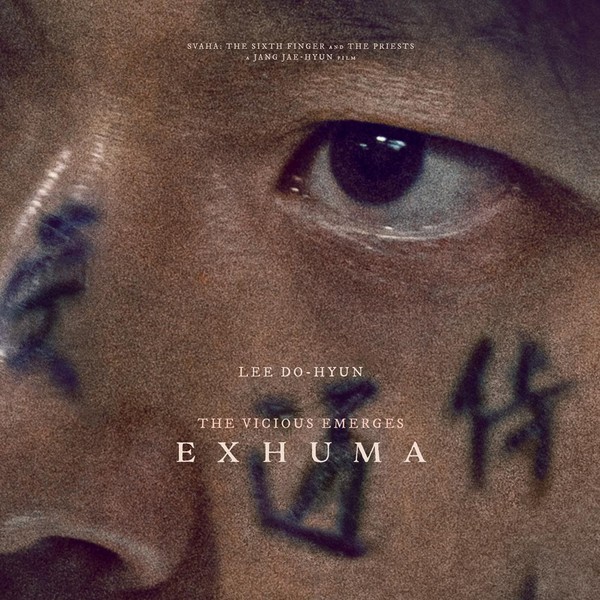
Actor Lee Do-hyun as a shaman with Korean Hanja characters drawn on his face in the movie Exhuma poster
Chinese media claim that the phoenix and dragon are traditional figures and symbols of China alone.
The content of many Korean TV dramas has also been protested by Chinese viewers. Anna , a Korean subscription-based video streaming service, starring singer and actress Bae Suzy, was heavily criticized by Chinese netizens on China's largest social networking site, Weibo, after only two episodes aired in mid-2022, for depicting the country as a place specializing in counterfeit goods.
South Korea reacts
Korean netizens, upon seeing the posts on X-network by Chinese netizens, quickly responded: " Exhuma is a Korean movie. You are lecturing us after illegally watching the movie, when it has not yet been shown in your country."
Korean intellectuals also joined the debate with Chinese netizens on this issue. Professor Seo Kyungduk of Sungshin Women's University said: "Constructive criticism is good, but I would like to advise Chinese audiences to stop watching Korean films illegally from now on." Seo Kyungduk noted: "Currently, the film Exhuma has not been officially released in the Chinese market."
Professor Seo Kyung-deok responded to online criticism by acknowledging the growing global recognition of Korean dramas and films, arguing that "this increased visibility can lead to the risk of misinterpreting the original content from different cultural perspectives, through negative attitudes and overreactions."
Professor Seo Kyung-deok further emphasized the importance of open communication and cross-cultural exchange. He suggested that engaging Chinese users in constructive dialogue could promote better understanding, rather than resorting to unofficial means to consume Korean content. He pointed to cases where popular Korean dramas such as The Glory , Squid Game , and Extraordinary Attorney Woo have faced challenges due to unauthorized access and illegal distribution methods in certain regions.
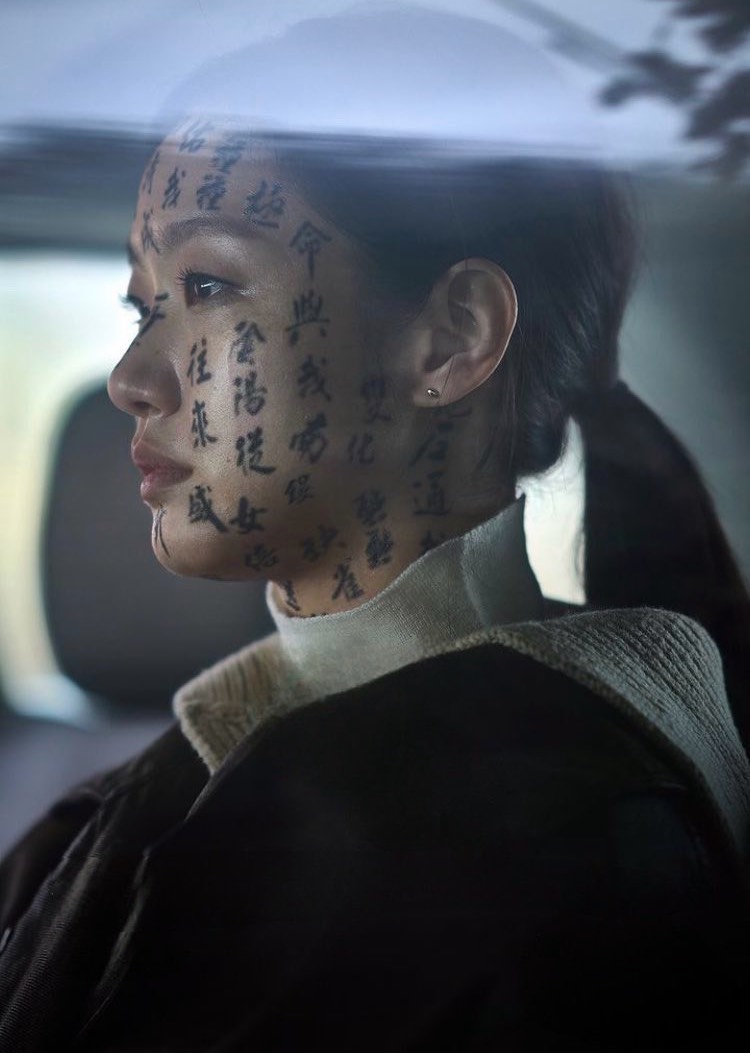
Actress Kim Go-eun as a female shaman with Korean Hanja characters drawn on her face in a scene from Exhuma
Highlighting issues such as unauthorized use of intellectual property and copyright infringement in his response, Professor Seo Kyung-deok stressed the importance of respecting intellectual property rights and cultural content, advocating for a shift to legal means of consumption and interaction with foreign media.
The truth behind the Chinese characters on the face of the magician in the movie Exhuma
Returning to the story of the Chinese characters painted all over the faces of the two Korean magicians (played by actor Lee Do-hyun and actress Kim Go-eun) in the movie Exhuma , and tattooed all over their bodies, are excerpts from the Diamond Sutra, which Indologist Max Müller briefly calls the Diamond Sutra. This is an important sutra of Mahayana Buddhism, widely circulated in East Asia, not just in China.
On the other hand, the characters that appear in the Exhuma story are in Hanja, also known as Hancha, which are Chinese characters that are still commonly used in Korean writing. Hanja have been used since the time of Gojoseon, the first Korean kingdom (Gojoseon was founded by the legendary Korean king Dangun Wanggom in 2333 BC). Hanja have never undergone any major reforms, and are closely related to traditional Japanese characters and traditional Chinese characters, although the stroke order of certain characters is slightly different. Only a small number of Hanja characters have been modified or are unique to Korean, while the rest are identical to traditional Chinese characters.
In contrast, many Chinese characters currently used in China, Malaysia, and Singapore have been simplified and contain fewer strokes than their Hanja counterparts. Hanja were once used to write native Korean words, but by the 20th century, Koreans used Hanja only to write Sino-Korean words, while writing native vocabulary and loanwords from other languages in Hangul. By the 21st century, even Sino-Korean words are often written in Hangul, sometimes with the corresponding Chinese character written next to them to avoid confusion if there are other characters or words with the same spelling.
According to the Standard Korean Language Dictionary published by the National Institute of Korean Language (NIKL), about half of Korean words are Sino-Korean, mainly in academic fields (science, politics and society). As can be seen, the Hanja characters used in the movie Exhuma are not inherently unfamiliar or arbitrarily "drawn" by Korean filmmakers without understanding, as Chinese netizens are refuting.
Source link


![[Photo] Opening of the World Cultural Festival in Hanoi](https://vphoto.vietnam.vn/thumb/1200x675/vietnam/resource/IMAGE/2025/10/10/1760113426728_ndo_br_lehoi-khaimac-jpg.webp)
![[Photo] Discover unique experiences at the first World Cultural Festival](https://vphoto.vietnam.vn/thumb/1200x675/vietnam/resource/IMAGE/2025/10/11/1760198064937_le-hoi-van-hoa-4199-3623-jpg.webp)
![[Photo] General Secretary attends the parade to celebrate the 80th anniversary of the founding of the Korean Workers' Party](https://vphoto.vietnam.vn/thumb/1200x675/vietnam/resource/IMAGE/2025/10/11/1760150039564_vna-potal-tong-bi-thu-du-le-duyet-binh-ky-niem-80-nam-thanh-lap-dang-lao-dong-trieu-tien-8331994-jpg.webp)






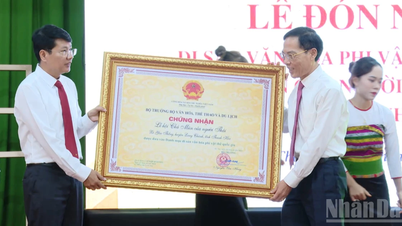
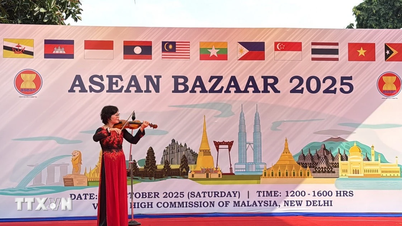

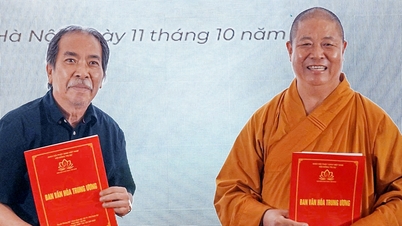

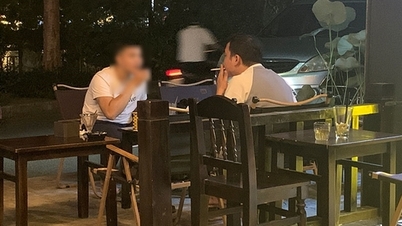









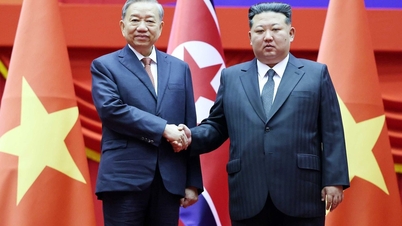

![[Photo] Ho Chi Minh City is brilliant with flags and flowers on the eve of the 1st Party Congress, term 2025-2030](https://vphoto.vietnam.vn/thumb/1200x675/vietnam/resource/IMAGE/2025/10/10/1760102923219_ndo_br_thiet-ke-chua-co-ten-43-png.webp)













































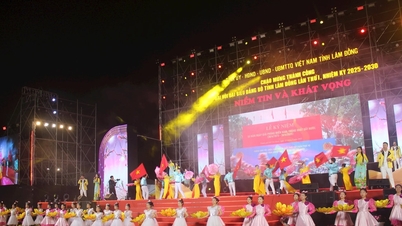

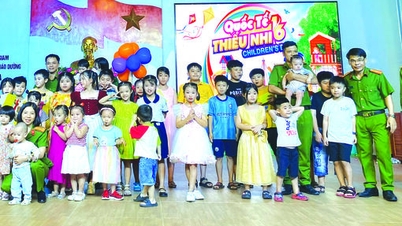




















Comment (0)